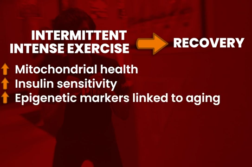BALTIMORE, Md. (Ivanhoe Newswire) – This year alone, 105,000 Americans will be told they have colon cancer. Most of these cancers start as a growth, or polyp, on the inside lining of the colon. Now, researchers say there’s more evidence that weight loss as an adult may have a significant impact on a person’s risk. Colorectal Polyps
It’s one of the most critical health problems for Americans – more than two-thirds of all adults are overweight or obese. Losing weight reduces the risk of chronic diseases, like Type 2 diabetes and some cancers.
“Our study is one of the first to suggest a benefit of losing excess weight in helping reduce colorectal polyps, which may help reduce colorectal cancer,” says cancer epidemiologist at the University of Maryland School of Medicine, Kathryn Hughes Barry, PhD, MPH.
Professor Barry and her colleagues used data from 17,000 men and women in the Prostate, Lung, Colorectal, and Ovarian cancer screening trial. The participants were age 55 to 74. The researchers found that for overweight or obese adults, losing just two pounds per decade decreased a person’s risk of polyps, which can develop into colorectal cancer.
“When we looked at weight loss, we found there was a 46% decreased risk of these polyps for people who lost weight,” Professor Barry explains to Ivanhoe.
The researchers say gaining about six pounds or more every five years was associated with a 30 percent increased risk of polyps. Professor Barry says there are other preventive measures people can take to lower risk, including exercising regularly, eating a fiber-rich diet including whole grains, fruits, and vegetables.
Professor Barry also suggests, “Lowering intake of red meat and processed meats, like deli meat.”
Professor Barry also emphasized the importance of regular colorectal cancer screenings. The recommendation for most adults is to have a colonoscopy at age 45, instead of 50, unless you have a family history of colorectal cancer, in which case your doctor may recommend an even earlier screening.
Contributors to this news report include: Cyndy McGrath, Producer; Kirk Manson, Videographer; Roque Correa, Editor.
To receive a free weekly e-mail on medical breakthroughs from Ivanhoe, sign up at: http://www.ivanhoe.com/ftk
Sources:
MEDICAL BREAKTHROUGHS
RESEARCH SUMMARY
TOPIC: WEIGHT LOSS AND COLORECTAL POLYPS
REPORT: MB #5109
BACKGROUND: Colon cancer is the third most common cancer diagnosed in the USA and the American Cancer Society estimates that there are 106,180 new cases of colon cancer yearly. Colorectal cancer is the third leading cancer related death in men and in women and the second most common cause of death when the numbers for men and women are combined, It is expected to cause about 52,580 deaths during 2022. The overall lifetime risk of developing colorectal cancer is about one in twenty-three men and one in twenty-five women.
DIAGNOSING: When diagnosing colon cancer, the symptoms include a persistent change in bowel habit, persistent abdominal discomfort such as cramps, gas or pain in your stomach, weakness or fatigue and unexplained weight loss. Many people with colon cancer experience no symptoms in early stages of the cancer and when symptoms appear they are likely to vary, depending on the size and location in the large intestine. Diagnosing colon or colorectal cancer is straightforward in that people get screened for colon cancer around the age of forty-five years old and people who have an increased risk such as those with a family history of the disease should consider getting screened sooner. There are several different screening options, and each provide benefits and drawbacks. Talk to your doctor about the different options for screening and together decide which tests are appropriate for you.
(Source: https://www.mayoclinic.org/diseases-conditions/colon-cancer/symptoms-causes/syc-20353669)
PREVENTION: To reduce your risk of colon cancer, weight loss and change in diet is being researched. Scientists want to see if changes in your diet can reduce your colorectal cancer risk and medical experts often recommend a diet low in animal fats and higher in fruits, vegetables and whole grains to reduce the risk of other chronic diseases such as diabetes and coronary artery disease. Making healthy choices helps as well such as increasing your physical activity, keeping a healthy body weight, and limiting use of alcohol and tobacco.
(Source: https://www.cdc.gov/cancer/colorectal/basic_info/prevention.htm)
FOR MORE INFORMATION ON THIS REPORT, PLEASE CONTACT:
Deborah Kotz
(410) 804-0054
If this story or any other Ivanhoe story has impacted your life or prompted you or someone you know to seek or change treatments, please let us know by contacting Marjorie Bekaert Thomas at mthomas@ivanhoe.com




